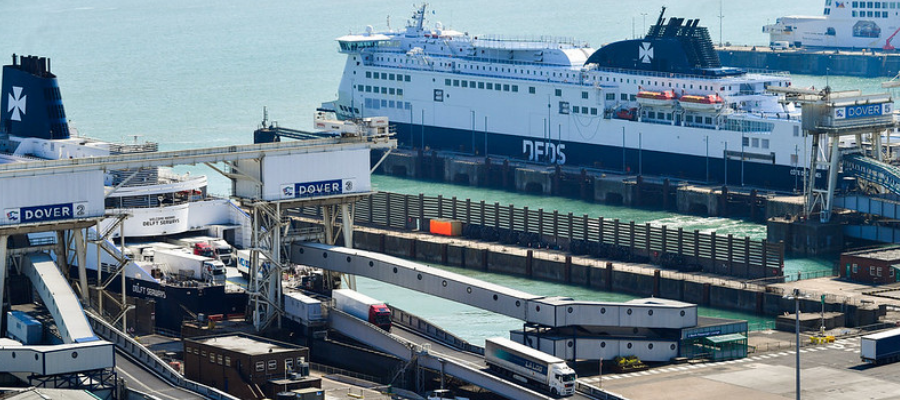🕒 Article read time: 2 minutes
Businesses frustrated by constant delays to post-Brexit import checks, says Logistics UK

The government’s decision last week (28 April 2022) to rethink the introduction of post-Brexit import checks on certain goods arriving from the EU (originally scheduled to be introduced in July 2022) while it finalises its 2025 Border Strategy will be met with mixed reactions from the industry, Logistics UK has said.
While the principles underpinning this strategy – digitisation, better use of data and trusted trader schemes, and the creation of a Single Trade Window – have the potential to facilitate trade and support the UK’s importers and exporters, it is unfortunate that businesses had to deal with so many false starts.
“Businesses need stability, clarity and certainty which constant delays and changes to the nature of future post-Brexit checks do not deliver,” said Sarah Laouadi, Logistics UK’s Head of International Policy, “While we understand the government’s reasoning behind last week’s decision – aligning the checks with its 2025 Border Strategy to maximise optimisation and simplification of the new processes – it should not have taken years of wavering on the nature of checks for these goods and changing deadlines for their implementation. The government’s wavering approach comes at the cost of logistics businesses who have invested time and money preparing for the introduction of checks – that were postponed four times over the years – before the decision to take a different approach was reached last week.
“Logistics UK is urging the government to make a clear – and final – commitment to a process and a deadline and ensure the necessary facilities, staff and processes are in place and ready to cope with the volume and patterns of trade by that deadline. Logistics UK stands ready to commit its expertise to help design a revised action plan and timetable that will not have to be shifted again.
“Going forward, we need to see closer monitoring of progress towards readiness for the government’s new approach, with review points, intermediary milestones and an alert system that triggers the allocation of extra government resources when a work package appears not to be on track. Logistics businesses are resilient and flexible; they stand ready to keep goods moving to and from the UK but need certainty to continue to trade effectively with the EU in the future.”
*www.logistics.org.uk/brexit
Published On: 05/05/2022 16:00:48

Comments Section
If you are a Logistics UK member login to add comments.